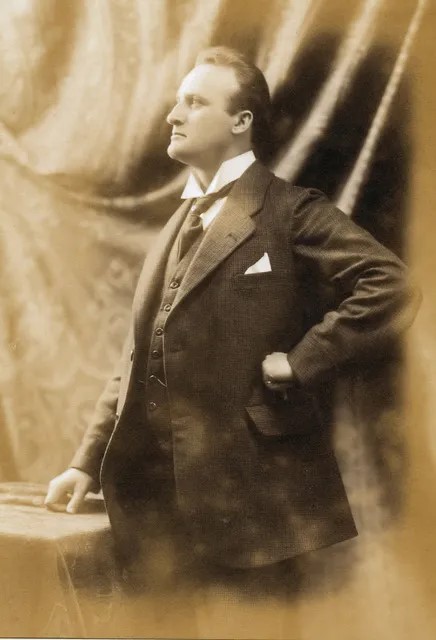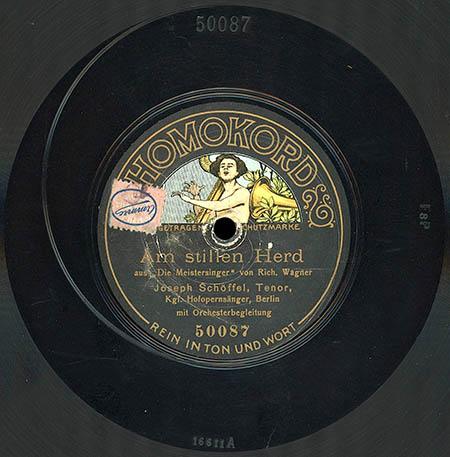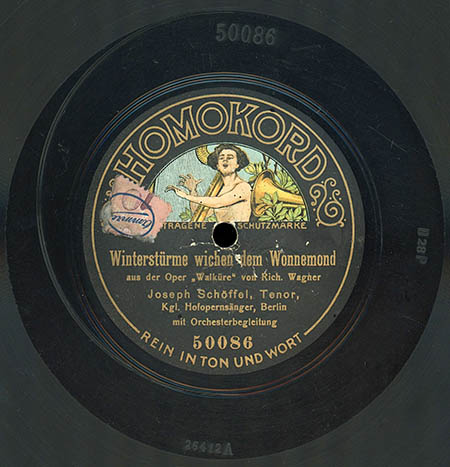Schöffel was a merchant and sang in an amateur choir. One day in 1904, he plucked up the courage to travel to Bayreuth
and audition with Julius Kniese, the head of the Wagner school for young singers that Cosima Wagner had founded. Kniese found his voice
promising, and so did Ms. Wagner: Schöffel was accepted. After Kniese's 1905 death, he completed his vocal studies in Berlin.
He made his debut as Walther von der Vogelweide in Dresden in 1907. From 1909, he was at the Berlin Hofoper, where he got only small
roles though (in 1910, he sang Beppe to Enrico Caruso's Canio), and met with the opposition of his more experienced colleagues. He left
for Lübeck in 1912, where his career really began: he sang Lohengrin, Tristan and Tannhäuser!
In 1913, he was hired by the opera theater in Karlsruhe, where he stayed until 1921. It was probably the happiest period of his career: he
was adored by the public, particularly (being handsome and a good actor) by the female part of it, and sang everything a heldentenor can
dream of: Lohengrin, Erik, Stolzing, Siegmund, both Siegfrieds, Tannhäuser, Tristan, Parsifal, Florestan, Max, Éléazar,
Faust, Don José, Radamès, Canio, Mathias Freudhofer (Evangelimann), Fisherman (Ilsebill by Friedrich Klose), Andelo
(Richardis by Hermann Wolfgang von Waltershausen, world premiere, 1915), Paul (Die tote Stadt), and with particular success:
the title role in Meister Guido by Hermann Noetzel (world premiere, 1918), and Pedro.
From Karlsruhe, Schöffel went to Barmen-Elberfeld for two seasons, then to Brünn/Brno for the 1923/24 season; for the rest of
his career, he was a freelancer, appearing all over Germany. He retired in the mid-1930s, and founded a singing and acting studio in his
native Bavarian town of Hof.
Reference 1; reference 2: Kutsch & Riemens
Picture source


